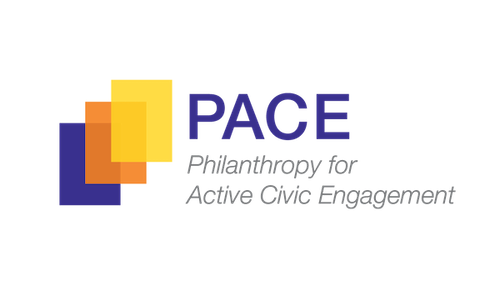Faith and civic life are inextricably linked.
They always have been. While the First Amendment guarantees freedom of (and from) religion, faith and spiritual values helped inspire our founders’ ideas, our laws, norms, and expectations of citizenship. Faith-inspired institutions provide education, social services, philanthropy, housing, volunteerism, disaster relief, and more. Even as formal religious attendance and affiliation have decreased in the United States over recent decades, the positive impact of faith on America’s social infrastructure, politics, and public engagement remains profound.
Faith-inspired people and organizations support democracy and civic engagement by...
From 2019-23, Philanthropy for Active Civic Engagement (PACE) examined the landscape of faith, democracy, and philanthropy through the Faith In/And Democracy initiative (FIAD). We believe that the social good generated because of and within faith organizations is not only critical for combating polarization and oppression, but it is also vital to strengthening our social safety net and nurturing an engaged, empowered citizenry. The consequential story of faith’s positive impact on American civic life is under-recognized and undervalued by philanthropy. Our aim is to shift that. On this site, we share the evidence we collected that points to faith’s positive impact on democracy and civic engagement.
Evidence that contextualizes the role of faith in America and its importance to Americans.
If you have evidence to add, please send it to us.
Analysis
Philanthropists and politicians: Religion is not a problem to solve, it’s a partnership opportunity
American Grace: How Religion Divides and Unites Us
Millennials Had the Biggest Increase in Giving Among the Generations, New Survey Finds
The Pillars Project: Faith Pillar: Why should faith communities care about authoritarianism?
MAILING ADDRESS
611 Pennsylvania Ave SE, #372
Washington, DC 20003

